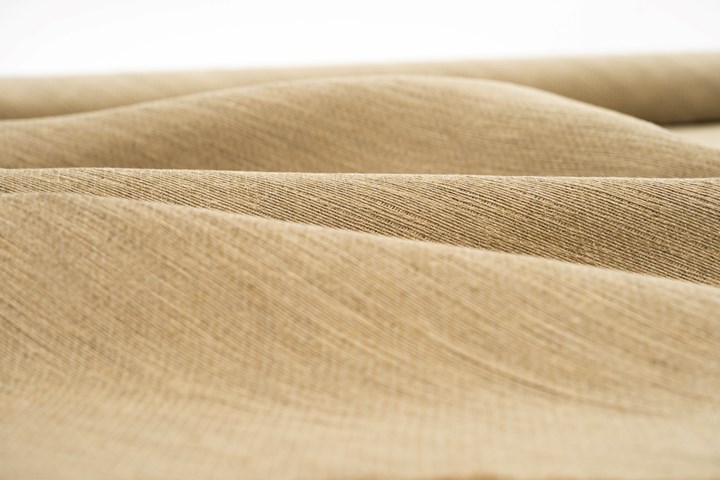Saertex enters into sustainable partnership with Terre de Lin for flax fibers
The Normandy-based supplier will enhance Saertex’s textile composite capabilities in markets such as marine and sports and leisure.

Flax fiber non-crimp fabrics (NCFs). Photo Credit: Saertex
Saertex (Saerbeck, Germany) and Terre de Lin (Saint-Pierre-le-Viger, France) have launched a collaboration for non-crimp fabrics (NCFs) with flax fibers for the marine and sports and leisure segments. The partnership of the two companies aims to combine Saertex’s expertise in reinforcement materials with Terre de Lin’s large capacity of sustainable flax fibers, said to be the largest supplier in the world.
Saertex is known for its expertise in composite reinforcements made from glass, carbon and aramid fibers. In addition to the previously used basalt, flax is now reported to be the second bio-based fiber that expands the range of textile possibilities. Flax fibers are renewable and have minimal environmental impact during processing. They help Saertex’s partners to reduce the CO2 footprint of their composite products and are thus in line with the company’s corporate vision, “Innovation for a resource-saving future,” which aims to make a significant contribution towards minimizing the consumption of non-renewable resources and fossil fuels.
Saertex and Terre de Lin will be at JEC World 2022 in May, displaying a rudder blade, which is part of a sailboat built predominantly from multiaxial flax fabrics by French Shipyard idb Marine (Trégunc, France), as well as other sustainable and natural-reinforced applications. However, among the many potential application areas, the company says the marine sector is a forerunner that is increasingly using flax NCFs, and so naturally represent an important market for Saertex.
“With Terre de Lin, we have a strong partner with whom we share a common goal: to provide sustainable solutions that are tailored to customer applications,” says Nicolas Vernin, team leader SU Industry EMEA. “We are convinced that Terre de Lin is the optimal fiber supplier for reliable, reproducible and high-quality reinforcing materials made from flax. High production capacities ensure maximum availability for our customers who want to improve the environmental performance of their composite products.”
Based in Normandy, Terre de Lin manages flax culture and the transformation from seeds to fibers. The company is committed to ongoing quality improvement and innovation. Next to the textile market, Terre de Lin, together with its subsidiary TDL Technique, is involved in the development of flax fibers for technical and composite applications. For 10 years now, TDL Technique has supported composite processors and end-users in the implementation of flax fibers composites.
“With flax fibers, we opened a new path for sustainable composites. We have spent the last decade pioneering the development of flax fibers for composites,” says Thierry Goujon, general manager of Terre de Lin. “Today, our aim is to secure the flax fibers supply for our industrial partners in the composites sector, and primarily to reinforcements producers. This technical and commercial partnership [with Saertex] will enable us to target applications where flax non-crimp fabrics make a real difference and increase the use of flax fibers for sustainable composite solutions.”
Related Content
-
Watch: A practical view of sustainability in composites product development
Markus Beer of Forward Engineering addresses definitions of sustainability, how to approach sustainability goals, the role of life cycle analysis (LCA) and social, environmental and governmental driving forces. Watch his “CW Tech Days: Sustainability” presentation.
-
Novel composite technology replaces welded joints in tubular structures
The Tree Composites TC-joint replaces traditional welding in jacket foundations for offshore wind turbine generator applications, advancing the world’s quest for fast, sustainable energy deployment.
-
Composites end markets: Electronics (2024)
Increasingly, prototype and production-ready smart devices featuring thermoplastic composite cases and other components provide lightweight, optimized sustainable alternatives to metal.















